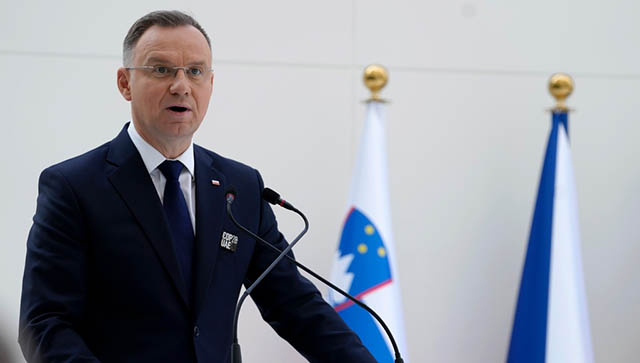In a recent turn of events in Central Europe, Poland has become the battleground for a political power struggle between President Andrzej Duda and Prime Minister Donald Tusk. The conflict escalated dramatically when Warsaw police raided the presidential palace in an attempt to capture two opposition Members of Parliament (MPs) accused of abuse of power. The situation has ignited a heated debate over the boundaries of presidential authority and the rule of law in the country.
Raid on the presidential palace The latest episode in this political saga unfolded when the Warsaw police raided the presidential palace to apprehend Mariusz Kamiński and Maciej Wąsik, former ministers turned opposition MPs. Despite having been pardoned by President Duda in 2015, the Supreme Court of Poland invalidated the pardon, leading to their re-arrest and imprisonment. President Duda’s reaction President Duda, deeply dismayed by the situation, expressed his discontent, stating that he had already pardoned the two MPs in 2015. Despite his efforts to intervene and calls for calm, the opposition party’s supporters are angered by the actions taken against the MPs, viewing them as politically motivated. “I am deeply shaken by this situation, the fact that they (former ministers Mariusz Kaminski and Maciej Wasik ) were put in prison despite presidential pardon and that it was done in such zeal and such brutality,” said President Duda. Pensioner, Zbigniew Chalas, 67, said, “They enter the presidential palace and arrest people. The presidential palace is akin to an embassy! People seek refuge from repression, yet someone questions the presidential pardon. Who is above the president? This government, right now, seems to operate outside the bounds of the law. I don’t want to offend anyone, but I feel like I’m living in a banana republic.” Supreme Court’s ruling The Supreme Court’s decision to invalidate President Duda’s pardon was based on the contention that the pardon was granted too early, circumventing the standard appeal processes. This ruling has further intensified the political and ideological battle between the current Tusk government and loyalists of the previous right-wing nationalist administration. Poland’s recent political history has been marked by a shift in leadership from a right-wing nationalist government, frequently at odds with the European Union, to a more pro-EU stance under Prime Minister Donald Tusk. This ideological shift has deepened the divide between President Duda, appointed by the previous government, and Prime Minister Tusk, leading to accusations of undermining Duda’s authority. “The crown would not fall from his (president Duda) head, even if he were to acknowledge there is a legal dispute. This dispute arises from the belief that the first pardon was ineffective, and therefore, it should be reopened. No one would be bothering him about it, and he could put an end to this unnecessary show,” said Polish Prime Minister Donald Tusk. As tensions between the two power centers persist, the people of Poland are caught in the crossfire, with the next presidential election scheduled for May 2025. The ongoing disputes and clashes are expected to continue, exacerbating the already challenging governance situation in the country. Views expressed in the above piece are personal and solely that of the author. They do not necessarily reflect Firstpost’s views. Read all the Latest News , Trending News , Cricket News , Bollywood News , India News and Entertainment News here. Follow us on Facebook, Twitter and Instagram.


)

)
)
)
)
)
)
)
)



